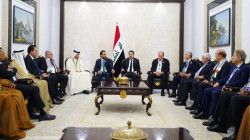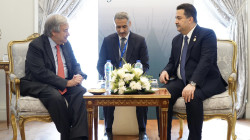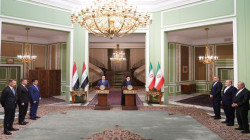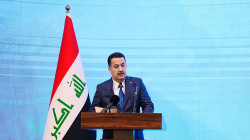Baghdad braces as concerns rise over targeted US bases in Iraq
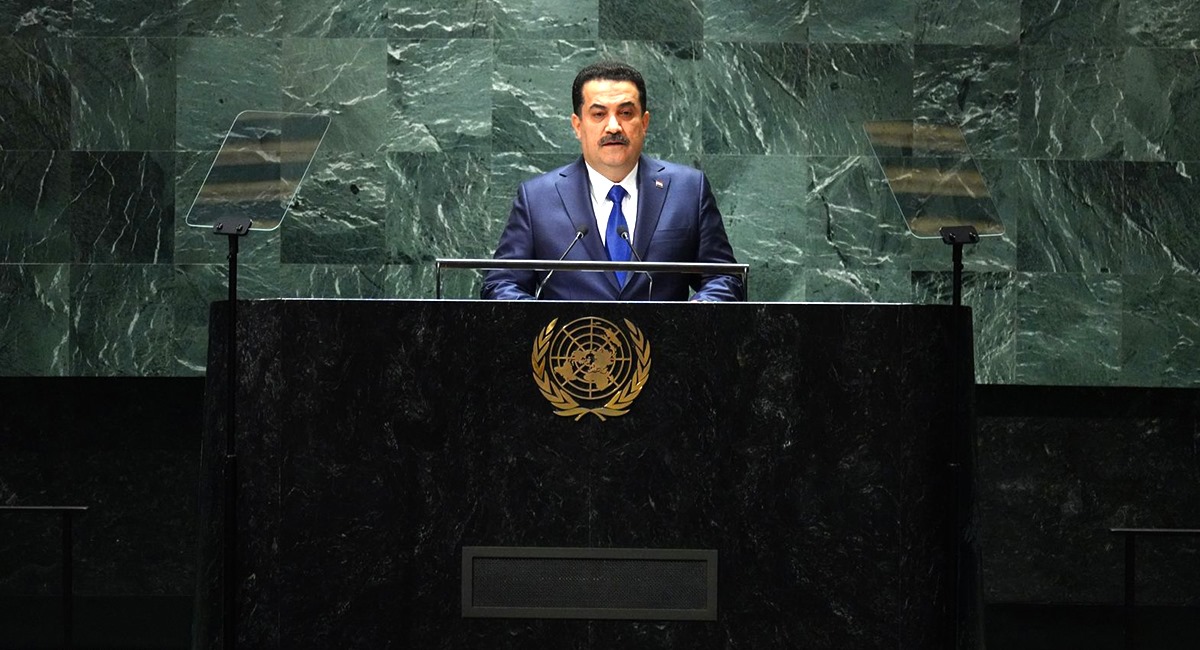
Shafaq News / As events in Gaza continue to unfold, warnings regarding the risks of dragging Iraq into regional conflicts have intensified. Observers emphasize that the idea of "uniting resistance fronts" is detrimental to Iraq's interests and could result in significant losses that the government of Mohammed Shia Al-Sudani may not be able to bear. This is particularly concerning considering Iraq's strategic agreement with the United States, which could potentially revert the country to a volatile situation after a brief period of recovery.
In recent days, factions of the resistance have targeted American bases in Iraq, including Victory in Baghdad, Ain al-Assad in al-Anbar, and Harir in Erbil, following a ceasefire that lasted for over a year. Although US forces have not yet taken retaliatory action, analysts suggest that the increasing attacks may eventually compel Washington to respond to these threats.
"Al-Sudani's speech galvanizes resistance factions
In this context, security expert Mukhalled Hazem Al-Darb stated, "The axis of resistance stretches from Iraq to Syria, Lebanon, and Yemen. The intention behind targeting American bases in Iraq is to send a message that they are ready to respond to American interests if Gaza is invaded, as the US supports the Zionist entity in its war against Gaza."
Al-Darb explained, "Al-Sudani's speech in Cairo was not diplomatic like the speeches of other presidents and kings. It was emotional and revolutionary. He considered Iraq as part of the axis of resistance in the ongoing conflict, which has encouraged the resistance factions to target American bases and interests in Iraq."
He added that "the coming days will be full of surprises as conflict zones move beyond their conventional boundaries, especially if they unify their discourse and announce the zero hour for their operations. At that point, Iraq will become part of these operations, and the situation will escalate."
He pointed out that "the lack of a response from the American side to the targeting of its bases may be due to considering these attacks as part of 'normal conflict zones.' However, they will not stand idly by if these attacks increase, and they will respond. This will have repercussions on the fragile economy, the relatively stable security situation, and may return the country to a volatile state."
Reduction of US diplomatic representation
The US embassy in Iraq announced yesterday that the State Department had ordered the departure of non-essential government personnel and their family members from the embassy in Baghdad and the US Consulate General in Erbil, Kurdistan.
According to the statement, the US State Department also advised American citizens not to travel to Iraq after the recent attacks on US forces and personnel in the region. It further highlighted security concerns and directed US government personnel not to use Baghdad International Airport.
In this regard, political analyst Ahmed Al-Yasiri said, "The issue of reducing US diplomatic representation in the US Embassy is linked to internal conflict dynamics, which are between Iran-backed factions and US forces in Iraq." He pointed out that "the recent targeting operations in Iraq, based on Gaza events, disrupted the conflict dynamics."
Factions facing a dilemma
Al-Yasiri explained to Shafaq News Agency, "The decision of the factions to attack US bases is decentralized, not originating from their political parties or related to Iraq's interests." He pointed out that "the political facade of these factions is a partisan one, constituting the largest bloc in parliament, similar to how Hezbollah forms the government in Lebanon. The military connection is linked to the Islamic Revolutionary Guard Corps (IRGC)."
He added that "Iraqi factions are grappling with this dilemma between gaining political benefits and positions and continuing with the idea of unifying the battlefields, which is tied to external events that are not Iraq's concern, whether it's events in Gaza, the war in Lebanon, Yemen, and so on."
He emphasized, "The idea of unifying the battlefields harms Iraq's interests at the strategic level because there is an agreement with the US side. Part of the Biden administration's agreement with Al-Sudani’s government from its inception is to continue the ceasefire, maintain military discipline, and ensure the safety of US bases."
He continued, "What is happening now is undermining this ceasefire, and it may have serious repercussions on the Iraqi economy in the near future, in terms of the control and dominance of the US Federal Reserve over the movement and dynamics of the Iraqi economy. This aspect could be used as leverage against Al-Sudani’s government if it cannot control the actions of the factions."
Call for alternative stances
On the other hand, Mohammed Ghasoub Younis, the director of the "Al-Rasd" Center for Political and Strategic Studies, suggested, "what the resistance has done is not in the interest of Iraq, and it does not constitute support for Hamas or the factions of the resistance in Gaza. Instead, it would have been more appropriate to resort to other means to exert pressure on the Americans and the Zionist entity."
Younis added to Shafaq News Agency, "This stance taken by the factions of the resistance will have a negative impact on the situation in Iraq and will end the honeymoon period between Al-Sudani’s government and the American ambassador, who was close to the government and many of the leaders of the Coordinating Framework."
He explained, "the stance of Muqtada al-Sadr, the leader of the Sadrist Movement, was better because it did not affect Iraq when he called on Arabs and Muslims to stand on the borders of occupied Palestine without taking up arms. This stance had a more significant impact than the actions taken by the factions of the resistance in Iraq by targeting the bases. This is considered an alignment with Iran by mobilizing its proxies in Iraq, Syria, Lebanon, and Yemen."
He pointed out that "Iraq's entry into the axis conflict will expose the country to significant losses that Al-Sudani’s government will not be able to bear. Therefore, the government, political leadership, and wise individuals should suffice with positions that support the Palestinian people, focus on a ceasefire in Gaza, and take alternative stances without stirring enmity with the United States."
